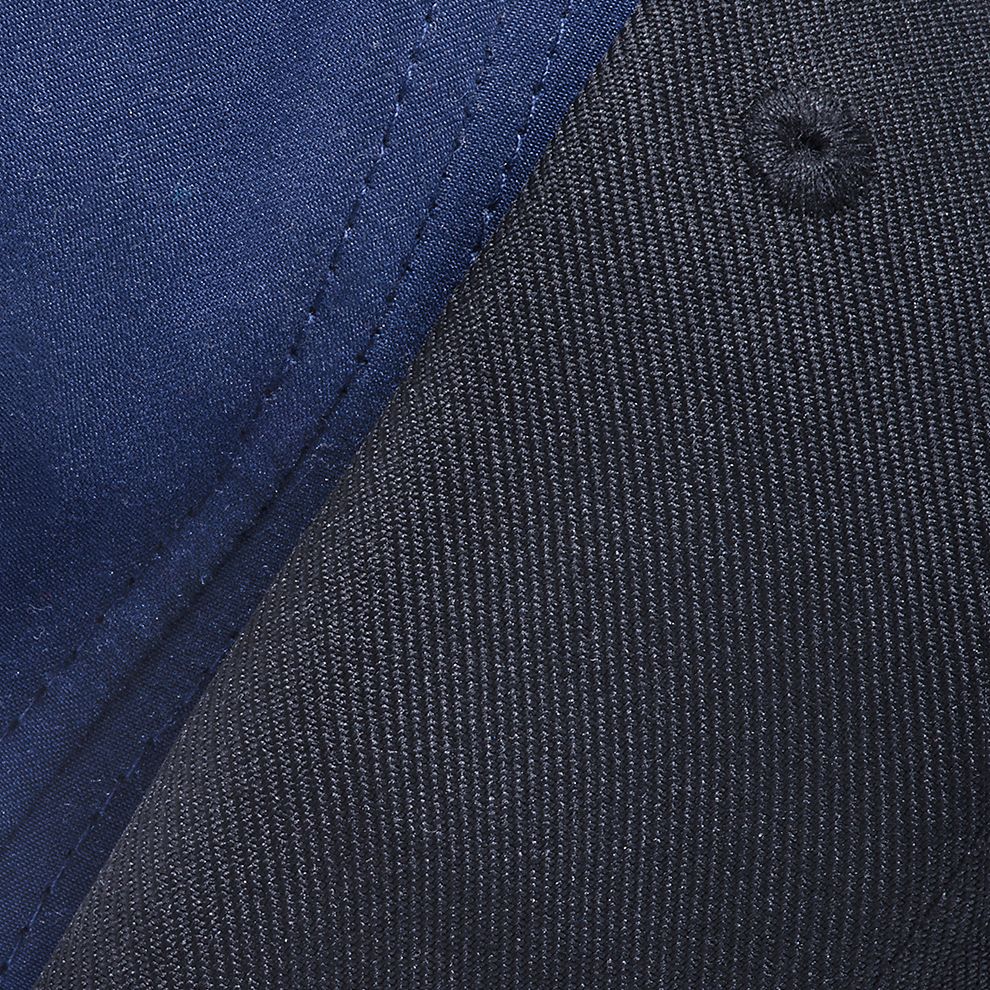
Recycled Polyester
Recycled polyester, also known as rPET, is obtained by collecting, grinding and melting existing plastic (PET) and then spinning it back into new polyester fibres. rPET can be manufactured from pre-consumption waste (scrap fabric and industrial waste) or post-consumption waste (generated by consumers after use).
This sector is developing to improve the harvesting and production processes for recycled fibres with the aim of having a positive impact on plastic pollution.
Pros
Recycled polyester gives a second life to a material that is not biodegradable and would otherwise be found in landfills or oceans. Transforming and recovering plastic waste into a useful material is very important for the environment.
Today, it is entirely possible to manufacture 100% rPET items with a certification covering each stage of the production process.
Recycled polyester is almost identical to virgin polyester in terms of quality, but its production requires 59% less energy and reduces CO2 emissions by 75% compared to regular polyester. In addition, recycled polyester can help reduce the extraction of crude oil and natural gas (needed to produce new plastic).
Finally, the development of a “non-virgin” supply chain for polyester fibre could have a significant impact on global energy and resource needs.
Cons
Plastic recycling has its limits: even 100% polyester clothes/objects cannot be recycled forever. Once a product has undergone 3 or 4 cycles of mechanical recycling, which is the most common and least expensive recycling technique, the fibres may lose their strength and must therefore be mixed with virgin fibres to keep their quality.
In addition, many garments are not made from pure polyester, but rather from a blend of polyester and other materials. In this case, it is more difficult, if not impossible, to recycle them.
It is also complicated to check the source of the product and find out if it is made from rPET. Today, only a document describing the traceability of the material can prove its authenticity. For each manufacturing run carried out by us, you will receive this document as a guarantee of the origin and authenticity of your rPET products.
Finally, the PET recycling process also has an impact on the environment, even though it requires less water, energy and chemicals.
We would be happy to produce your next rPET item. Please do not hesitate to contact us to discuss your future project.


